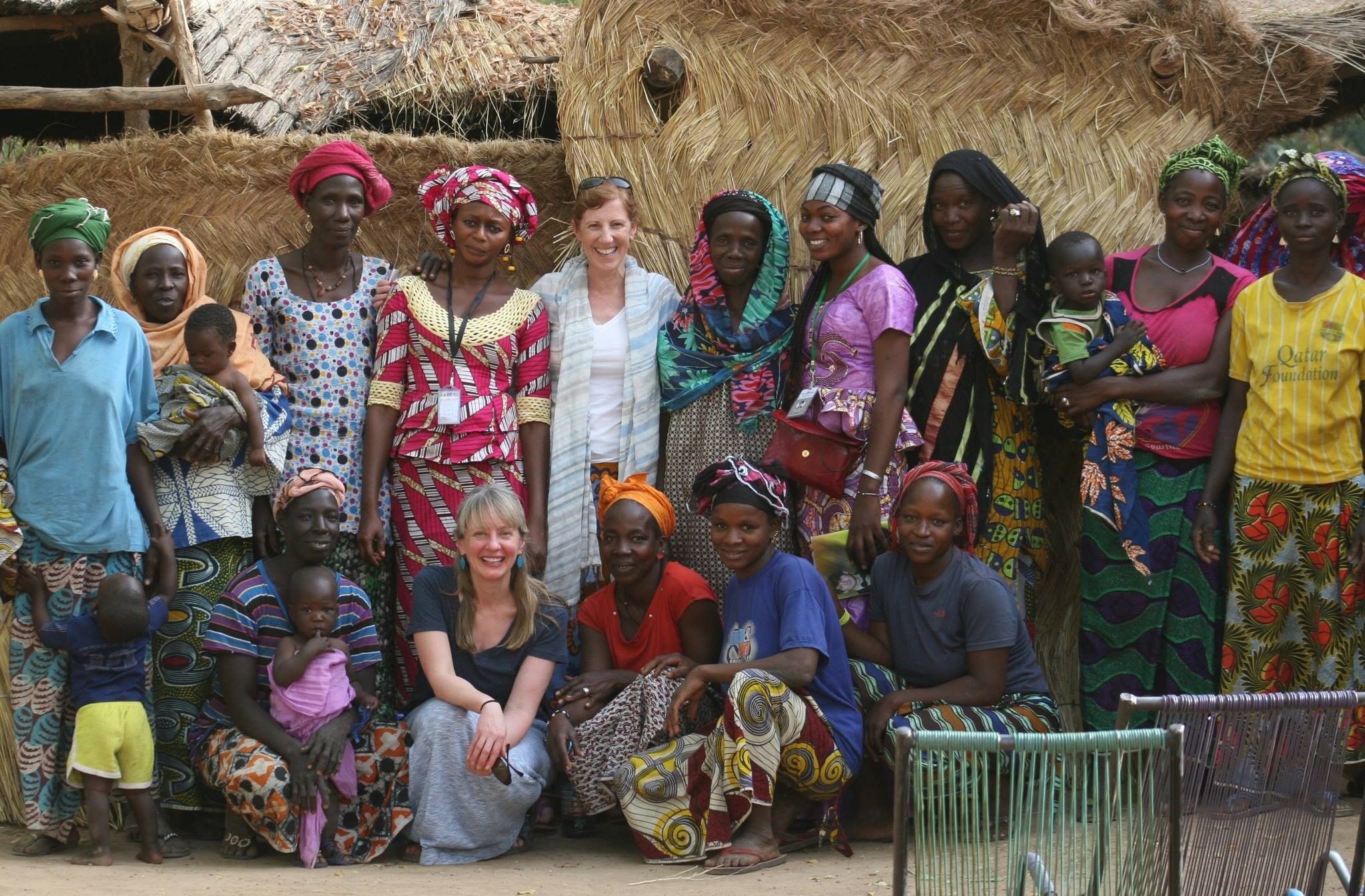Summer school break doesn’t look the same for children in Mali as it does for those in the United States. While kids in the U.S. might go to summer camp or ride bikes around their neighborhood, in Mali kids see summer as a time of hard work and school as a kind of rest break!
Explore the Music of Mali!
One of the things Mali is most famous for is its music. Whether you are listening to the sounds of the traditional instruments or tuning into more modern musicians, Mali’s music is distinctive and world renowned. We’ve come up with a great way to introduce you to the range of Mali’s music — sign up for our e-newsletter and we’ll provide you with a curated streaming playlist.
Learning Vs. Eating: A Real Dilemma for Students & Families
It usually rains more often from July through August in Mali, which is summer vacation for students. During this time, many parents rely on their children when it comes to working in millet, corn, peanut fields. This leads to a real dilemma when school reopens — do students stay in the fields or return to class?
Floods Become the Norm in Mali
This year, heavy rains have caused flooding and landslides across Mali including in urban areas. This increases the high risk of flooding that can lead to loss of crops and material goods in exposed localities. Unfortunately, this flooding is exactly what we have seen recently in many parts of Mali.
The Beauty of Mali: People, Music, History, & More
With so much bad news coming out of Mali these days, I thought it would be helpful to explore some brighter spots of news, history, and more from Mali. This is an eclectic tasting platter of some things I hope will take you beyond the depressing headlines to learn just a little more about a beautiful place and people. So for a little Friday fun, check out this small collection of videos…
Debating a New Education Policy: No Cheating
Child Begging: A Real Problem in Mali
By Adama Kone, Teacher Project Coordinator
Some people think the kids in big cities have an easier time that kids in our small partner villages, but that is not always the case. Take begging for example. Begging is one of the hardest things that authorities have been trying to address in Mali. Beggars in Mali are usually kids although now we see all ages involved.
Still, most beggars are young children and it is a risky business. The most common beggars are sets off twins because many people think that it is culturally right to turn your children into beggars if they are twins. Kids are sent out on busy roads to beg, risking accidents in the road or danger from strangers. Sometimes people even make their children look like twins and send them out begging!
Unfortunately, begging has recently taken on dramatic proportions to the point of becoming a real problem Malian society. This practice is well known because it happens in every single busy roads in Mali.
In my own neighborhood, I know Fousseyni and Awa who are 8-year-old twins. They spend every day begging in front of a mosque with their mother. The twins also walk long distances every day in order to beg in other neighborhoods. The twins told me that on their walks they meet students of their age who are attending school. Fousseyni said these kids seem so cheerful and carefree to him.
Their mother dropped her twins out of school so they could beg full-time. If they were enrolled, they would have been in 3rd grade. She explained to me that she did not have the correct paperwork to send the twins to school and their father did not support this in any case.
A band of young boys waits by the road to beg in Adama’s neighborhood.
In the long run, some children who grow up begging turn to crime because they grow out of the age to beg but have no education or skills for fall back on. That is the reason the government has been trying hard to stop the practice with no success. In fact, some times child beggars can make other kids drop out of school too by going out with them on streets and showing them how to make quick money begging rather than working in school.
I share this sad story to illustrate just one of the many pressures on young people in Mali to drop out of school and earn a living to help their family. This is part of what inspires me to do the work I do – when I see how hard kids have to strive to get an education, I want to do anything I can to help them.
Announcing Our New Podcast!
Celebrating the End of the Year By Jumping in the River!
Friday Fun Facts About Mali
By Merritt Frey, Executive Director
I recently had my 7 year anniversary as the Executive Director of Mali Rising…it is hard to believe! The anniversary has me thinking about how much I’ve learned over those years and how much I’ve grown to respect the people of Mali and love the culture of the country. On this cold Friday morning when I feel so far away from the warmth of the climate and people, I thought I’d share a few fun Mali facts to help you know the country a little better too.
This great picture is the perfect reminder of my first trip to Mali in 2016. This is the women of Simidji - home to Mali Rising’s Sue Chung Chui Middle School, Mali Rising staff member Hindaty, board member Jill, and me (bottom left/center).
FACT #1
Mali’s name comes from the Bambara word for hippopotamus, which can be found in the Niger River that winds its way through the country. As a side note, the name of Mali’s capital, Bamako, comes from the Bambara word meaning "place of crocodiles" or in some interpretations “the tail of the crocodile.”
FACT #2
Although today Mali is one of the poorest countries in the world, it used to be one of the very richest. Its great wealth was built on trading of salt and gold and the country was a center of scholarship and learning. (https://www.worldatlas.com/articles/10-interesting-facts-about-mali.html)
FACT #3
The prime meridian passes through the city of Gao in Mali. This means you can stand with one foot in each hemisphere if you visit Gao! (https://www.onhisowntrip.com/most-interesting-facts-about-mali/)
FACT #4
Mali achieved independence from France (which colonized much of West Africa) in 1960. This makes Mali quite a new democracy, and the legacy of colonization continues to cause issues today.
FACT #5
Mali’s economy is largely based on agriculture, with cotton being the primary export crop. Approximately 80% of the population is involved in farming or fishing as their main livelihood. Gold mining also contributes a significant amount to the country’s exports. Together, gold and cotton make up approximately 80% of the country’s exports. (http://justfunfacts.com/interesting-facts-about-mali/ and https://www.economy.com/mali/indicators).
Every country and every place has a complicated history and context. It has been a pleasure to have the chance to learn a little bit about Mali each year and to have my understanding of the place and people grow at the same time. It is such a good reminder to always be curious about how we are all the same and how we are all different!
Inspired by what you’ve read? Donate to Mali Rising to be part of keeping this work going!




